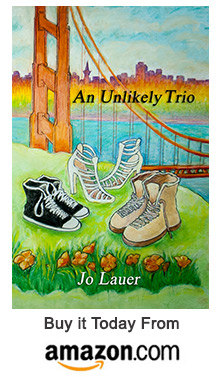
A client recently recommend a book for my bookshelf called, Are You Getting Enlightened or Losing Your Mind? How To Master Everyday And Extraordinary Spiritual Experiences, by Dennis Gersten, M.D.
I thought this synchronistic because in my adolescence I was fascinated by the question, what’s the difference between psychic and psychotic, since they share so many features. In the book, Dr. Gersten says, “One of the only things that saints and schizophrenics have in common is the fear of being ridiculed and called ‘crazy’ for their visions.”
As an adult clinician, I’m uncomfortable using diagnostic terms to label a client’s symptoms or experiences. It often seems limiting, reductionistic, and hurtful. I have psychic friends and acquaintances. They’re not ‘crazy’; their lives work well for them. I also work with people who have experienced what is normally considered psychosis (a break with reality often accompanied by hallucinations), whose lives don’t work so well.
After all these years, I still dwell in the gray area. Is the difference really whether you can make it work for you or not? My first attempt at writing non-fiction was a book I called Raven Stories and Other Non-Ordinary Tales. Here are a couple of excerpts from that manuscript:
Sometimes we just don’t know how to file or make sense of experiences we have. Ours is a cognitive culture.
For several weeks, my friend Marsh called in alarm to report a recurring eerie, bone-chilling, dream. In the dream she experienced a particular event as if it were actually happening to her, yet she wasn’t in the dream itself. She recounted sensory perceptions in vivid detail, unique in all her experience. A month or so later I received another panicked call. She had just read in the newspaper an account of her ‘dream’ as having just happened to someone else.
“Sounds like you’ve had a cross-over experience,” I said, trying to sound calm and reasonable. “This is when you experience something in your body that is actually happening to another individual.”
“This just can’t be real!” she replied. I was sure she was shaking her head in disbelief on the other end of the line. “It doesn’t make sense, it can’t be proven,” she protested. Her grasp on what she defined as reality was being shaken.
“It’s real because it happened,” I said. Not much consolation for her, but the best I could do. I pulled out a quote for back-up: “Such vision is for those who see with the Soul’s sight—and at the vision will rejoice, and awe will fall upon them—for now they are moving in the realm of Truth.” Plotinus, Enneads
In a chapter called “A Child’s Way of Knowing,” I relay this story:
My daughter’s friend, twenty-two year old Alice, remembers her childhood guide, Almaden. She describes him as “a knowing, a presence” inside her head who spoke to her without words. She first became aware of him when she was eight years old, standing beneath a cedar tree in her Sierra Nevada mountain homeland. He guided her through the forest, told her how to find a creek, and to gather certain stones with holes to string for an amulet bracelet to keep her safe. One day she and her sister were playing in a circle of trees they called “the camp.” Books, bags of cookies, an old woolen blanket, and a woven basket of treasures gathered from earth (pine cones, rocks, bird feathers, etc.), were strewn about. Almaden told Alice that he would straighten up the camp while they were gone, and she passed the good news on to her sister. When they returned shortly, the camp was clean!
“It never occurred to me that I shouldn’t hear him,” Alice said. “He just sort of was—it never seemed like anything unusual or worth mentioning to anyone.”
As a child growing up in semi rural Iowa, my very own invisible playmate, Mary Ann, and I had wonderful conversations over my miniature china tea set in the playroom. My parents tolerated (the idea of) her until my father accidentally sat on her. I let out a blood-curdling shriek which catapulted my father from the couch and raised his blood pressure several notches. I don’t remember Mary Ann visiting much after that.
The world of children is rich with intuition and magic, though it appears so ordinary to them. As writer Anne Lamott says, “When we listened to our intuition when we were small and then told the grown-ups what we believed to be true, we were often either corrected, ridiculed, or punished. God forbid you should have your own opinions or perceptions—better to have head lice… So you may have gotten into the habit of doubting the voice that was telling you quite clearly what was really going on. It is essential that you get it back.”
I also remember walking through the redwood forest one autumn morning a few years ago. My pace quickened against the chill in the air. Suddenly, I had the experience of elongating, growing taller, longer of limb. I felt my arms swinging in time with my steps which had become slower and more rhythmic as if I’d fallen into a pattern over a long distance. I felt the earth beneath my bare feet (which in ‘real time’ were clad in tennis shoes) as I strode. I was in a male body, like one of the plains runners in Africa in a documentary I’d seen recently. I’d never before experienced the perspective of someone seven feet tall until that moment.
Dr. Gersten refers to this phenomenon as identity transformation, where the individual feels she has become someone or something else without the terror of losing her own personality. The experience lasted only minutes, and when I came back into my own body, my first thought was, “Well, that was rather unusual.”
Are these “real” altered state experiences or merely brain chemistry at work? I’m no closer to having formed an opinion about that than I was back in adolescence; but I’m still fascinated by the question.








